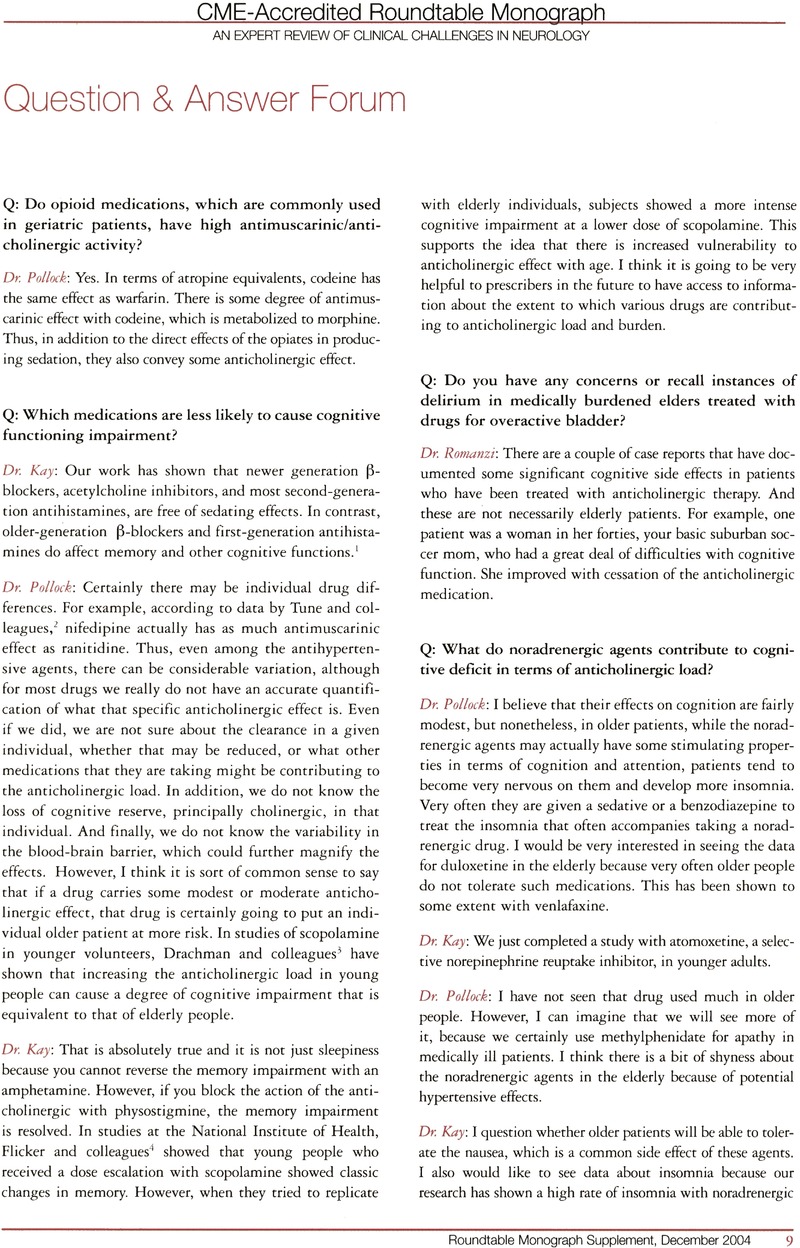No CrossRef data available.
Article contents
Question & Answer Forum
Published online by Cambridge University Press: 07 November 2014
Abstract
An abstract is not available for this content so a preview has been provided. Please use the Get access link above for information on how to access this content.

- Type
- CME-Accredited Roundtable Monograph
- Information
- Copyright
- Copyright © Cambridge University Press 2004
References
1.Kay, G, Starbuck, V. Computer applications in neuropsychology. In: Maruish, M, Berg, E, ed. Advances in Neuropsycbological Assessment. New York, NY: Lawrence Earlbaum Publisher; 1996.Google Scholar
2.Tune, L, Carr, S, Hoag, E, Cooper, T. Anticholinergic effects of drugs commonly prescribed for the elderly: potential means for assessing risk of delirium. Am J Psychiatry. 1992;149(10):1393–1494.Google ScholarPubMed
3.Drachman, DA, Noffsinger, D, Sahakian, BJ, Kurdziel, S, Fleming, P. Aging, memory, and the cholinergic system: a study of dichotic listening. Neurobiol Aging. 1980;1(1):39–43.Google Scholar
4.Flicker, C, Ferris, SH, Serby, M. Hypersensitivity to scopolamine in the elderly. Psychopharmacology. 1992;107:437–441.CrossRefGoogle ScholarPubMed
5.Tsao, JW, Heilman, KM. Transient memory impairment and hallucinations associated with tolterodine use. N Engl J Med. 2003;349:2274–2275.Google Scholar
6.Womack, KB, Heilman, KM. Tolterodine and memory: dry but forgetful. Arch Neural. 2003;60:771–773.Google Scholar
7.Borson, S, Scanlan, J, Brush, M, Vitaliano, P, Dokmak, A. The mini-cog: a cognitive ‘vital signs’ measure for dementia screening in multi-lingual elderly. Int J Geriatr Psychiatry. 2000;15(11):1021–1027.3.0.CO;2-6>CrossRefGoogle ScholarPubMed


